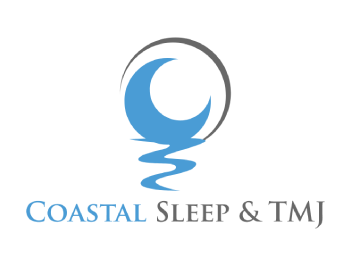Do you believe you might have sleep apnea?
A range of symptoms can indicate sleep apnea. Some patients experience several symptoms, while others are unaware of their developing health risks. Dr. Harper will discuss all aspects of your lifestyle, medical history, and any changes you notice in your daily quality of life. He has the expertise to treat obstructive sleep apnea in Hampton Roads, VA.
Understanding your risk factors and the common signs of a sleep disorder can mean the difference between life and death. Risks increase with anyone with underlying health issues, such as heart disease.

Signs and Symptoms of Sleep Apnea Can Include:
- Feeling tired even after a full night of sleep
- Needing coffee or caffeine to wake up or to get through the day
- Experiencing consistent headaches in the morning
- Snoring loudly and frequently
- Making choking or snorting sounds during sleep
- Stopping breathing during sleep
- Depression or irritability
- Unexplained weight gain or trouble losing weight
- High blood pressure
- Falling asleep while driving
- Menopausal or premenopausal symptoms
- Sore throat, dry mouth
- Gasping for air during sleep
- Irregular heartbeat
- Insomnia, difficulty getting to sleep
Signs of Sleep Apnea FAQs
Many things can warn you that you may have sleep apnea. Learn more by reading the answers to these frequently asked questions.
What foods cause sleep apnea?
Carbohydrates and dairy are two of the leading causes of sleep apnea. Bananas can also worsen the effects of sleep apnea.
Does sleep apnea get worse with age?
Sleep apnea can worsen with age. Age can also bring about sleep apnea. Muscles deteriorate in your airways as you age, affecting your ability to stay open and breathe.
What is the main cause of sleep apnea?
The main cause of sleep apnea is weight gain and obesity. Excess weight can block passages in your airways, throat, and mouth. While patients are asleep, tissues relax, causing blockages.
How do you know if sleep apnea is serious?
Sleep apnea is severe when patients have more than 30 apneas per hour. Sleep apnea can shorten patients’ lifespans by up to 15 years, so treating it sooner rather than later is important.
How long can you live with untreated sleep apnea?
Lack of treatment for sleep apnea can reduce a person’s lifespan by 12-15 years. Although no permanent cure exists, your doctor can treat sleep apnea and reduce its negative effects.
What organs does sleep apnea affect?
Sleep apnea has a large impact on your digestive system. Fatty liver disease, liver scarring, and elevated liver enzymes are more common in those with sleep apnea.
What Is Causing Me To Snore While I Sleep?
Not long ago, people would laugh or simply become annoyed and sleep in another room if they had to deal with a loud snorer. You rarely see comedy movies or television shows that portray snoring as funny. That is because we have learned that snoring often means that there is a much deeper medical condition causing the issue. If you are a snorer, these reasons can cause you to snore:
Your Age: Most of us already know that when you get older, your body begins to lose muscle tone. This requires your body to put more effort into simple exercises such as sleeping. Your tongue and throat muscles will also lose some muscle definition.
Your Weight: Chances are that you will be a snorer if you are overweight. This is due to the excess fatty tissues that build up inside your throat, on top of little or poor muscle tone. This will cause heavy and even violent snoring.
Your Bad Habits: If you are a heavy smoker or drinker, chances are, you are also a common snorer. Drinking alcohol before bed is a factor that causes regular snoring. Alcohol increases the relaxation of your muscles, which will disrupt airflow, causing you to snore. Conversely, smoking will cause irritation and inflammation to your nasal passages and throat muscles, disrupting airflow and causing you to snore.
Your Sleep Posture: Most of the time, people who sleep on their backs are snorers. The tissues in the back of your throat can easily fold over when you sleep on your back. The collapsing of the soft tissue causes blockage of your airway and snoring. If you snore on your back, try sleeping on your side. This may eliminate your snoring, helping you get much better sleep.
The Dangers of Ignoring Sleep Apnea Symptoms
If you’re experiencing any of the above symptoms, you must get help immediately. Untreated sleep apnea has serious health effects. Sleep apnea involves the muscles in the back of your throat collapsing and blocking your airway for periods. Even when you think you’ve rested well, how you feel the next day can tell you otherwise. You’ll have consequences from both sleep deprivation and a lack of oxygen.
Not getting enough air overnight can cause you to wake up with intense headaches. The longer you continue this pattern, the more severe the effects become. You get tired throughout the day, leading to gaps in memory and decreased cognitive abilities.
When you have untreated sleep apnea, you’re more at risk for various other serious health problems. In particular, it can target your vascular system. You’re at a higher risk of high blood pressure, heart disease, and an irregular heart rate. Over time, it can increase your chances of strokes and degenerative conditions like Parkinson’s and Alzheimer’s. Your immune system isn’t as good, so you’re more prone to infections and other contagious conditions.
When you’re sleep-deprived, your daily activities can become dangerous. You’re more likely to get in a car crash than those without the condition. You may have severe exhaustion and fall asleep behind the wheel. Your brain is foggier, and you have a decreased reaction time and may not be able to recognize dangerous situations as clearly.
There are social and emotional consequences, too. You’re more likely to have mental conditions like depression and anxiety. It’s hard to keep healthy relationships when you’re prone to mood swings and can’t concentrate. If you live with someone, the relationship can become strained if your snoring is also causing them to lose sleep.
Schedule A Sleep Study
Are you concerned that you might be at risk for a sleep disorder or have regularly experienced any of the above-mentioned symptoms? Discuss your concerns with Dr. Harper at your next routine dental care visit, or schedule a consultation online. Dr. Harper will provide free sleep apnea screening, including a discussion of your medical history.
If it is determined that you may be suffering from sleep apnea or sleep-disordered breathing, Dr. Harper will work with your regular physician to coordinate care. We work with local specialists to improve your sleep with accurate diagnosis and appropriate treatments. Call Coastal Sleep & TMJ at (757) 600-6535 today.
